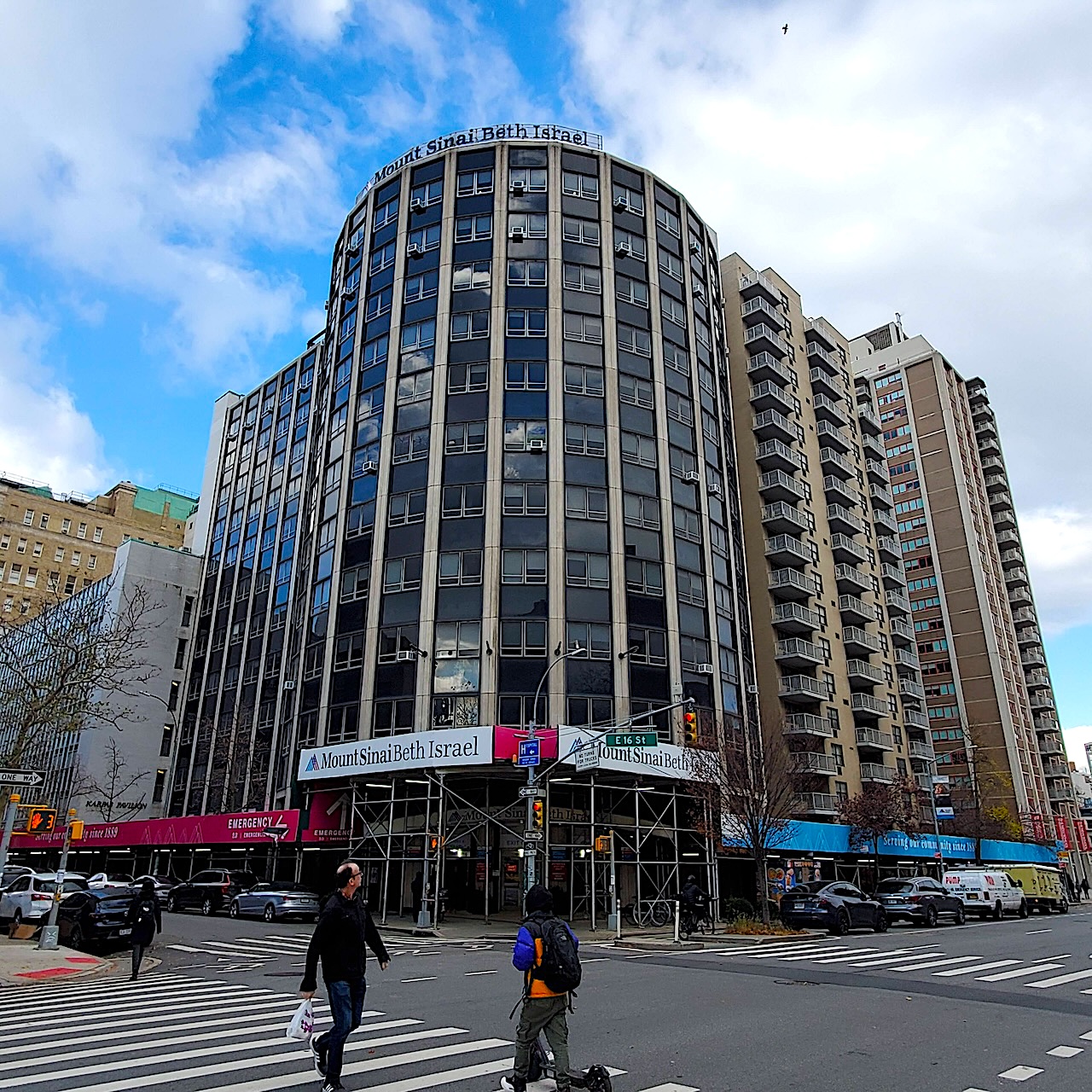In June 2021, Mount Sinai scuttled a plan to close Beth Israel Hospital and replace it with a smaller, 70-bed mini-hospital a few blocks away. Driving the decision was the COVID health crisis and the urgent need for inpatient bed capacity.
However, at the time, Beth Israel’s inpatient daily census had already been dropping. The vital healthcare hub — a renowned teaching hospital — is authorized for nearly 700 beds, yet today fills just 100. Critics say that’s on purpose — since Mount Sinai has been shifting services to its other hospitals.
The historic Gramercy institution has been hemorrhaging funds for years. According to hospital officials, it’s projected to lose $150 million this year. Again, critics charge that if high-paying health services were kept there instead of being relocated, the hospital would be doing better financially. Cynics say the scheme is all just a real estate “land grab,” with Mount Sinai poised to reap a huge windfall from the sale of the E. 16th Street hospital campus.
Following a few news reports in recent months that the closing plan had been revived and could happen within “the next year,” reality hit home when Mount Sinai recently announced the shuttering of Mount Sinai Beth Israel is, in fact, slated for July 12 — slightly more than six months away. To hear hospital staff tell it, though, the ramping down will come even earlier, by February or March, with just a “skeleton crew” left to run the emergency department and “med surge” for the final months.
Local politicians showed a united front against the closure at a Nov. 28 public forum — the first public outreach Sinai has done about the plan.
All the politicos, nurses, union members and concerned locals who spoke at the forum said M.S.B.I. is a critical facility for Manhattan south of 23rd Street — and also slammed Mount Sinai for not having been transparent about its plan. Indeed, it was shocking to hear Sinai officials admit that for the past two years, they have worked with the New York State Department of Health to try to designate M.S.B.I. a “safety-net hospital” to qualify it for higher Medicaid reimbursements. Yet, Sinai says, there is a limited pot of funds for this use, making it a “zero sum game” — meaning other hospitals in needy areas also rely on this money.
Sinai officials assured that other local emergency departments would pick up the slack, that there are dozens of urgent-care centers south of 42nd Street, that its 10 Union Square East health complex is very “robust” (a word they used a lot). They say healthcare is changing, with a focus on ambulatory care. But, as Borough President Mark Levine noted, nothing equals a full-service, 24-hour hospital.
Mark Rubin, an I.C.U nurse at M.S.B.I., said that Beth Israel was founded to serve the indigent and that it’s a mission that still holds true to this day. The East Village / Lower East Side is “a melting pot” of different races and ethnicities — “Hispanic, Asian, Black, Indian” — a union representative and former nurse stressed, saying this population relies on M.S.B.I.
The hospital’s stealth closure plan didn’t sit well with Ibrahim Alevante, who grew up in the area and is vice president of 504 Democrats, a political club whose members are disabled.
Simply put, he said, “The Lower East Side don’t play that.”
St. Vincent’s Hospital’s closing in 2010 on the West Side, in Greenwich Village, was crushing, in the wake of which, M.S.B.I. became a key safety valve. Yes, Bellevue Hospital is just a few blocks north of M.S.B.I., with N.Y.U. Langone just a few blocks further north from there. But hospitals like Bellevue are already reportedly at capacity, with emergency room waits already in the hours.
Plus, minutes matter with heart attacks and strokes. Congestion pricing would help cut gridlock, but it’s impossible to imagine a bottleneck-free Manhattan Central Business District. Those extra blocks and extra minutes could mean the difference between life and death, or surviving a health emergency intact versus with lasting damage.
Also, the closing of M.S.B.I. would mean the loss of an important Downtown birthing center, meaning local women would have to travel Uptown to deliver their babies.
Our local politicians have all said they want to work with Sinai to save M.S.B.I. So, let’s get to work and find a way to keep this critical facility open!


What happens in an epidemic if Covid reasserts itself in a new form or a new illness occurs, the way HIV did? The 400,000 residents below 14th Street will have nowhere to go for help. I myself waited for treatment at the NYU Langone emergency department for 9 hours with a broken metatarsal after having waited 2 hours at an urgent-care on Broadway that did nothing but send me to emergency.
There is a lot of inaccessibility at Beth Israel at Union Square.